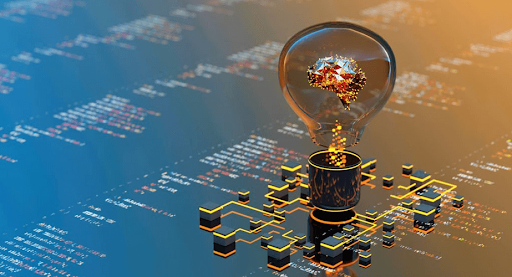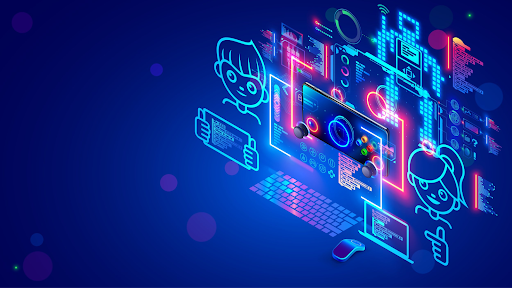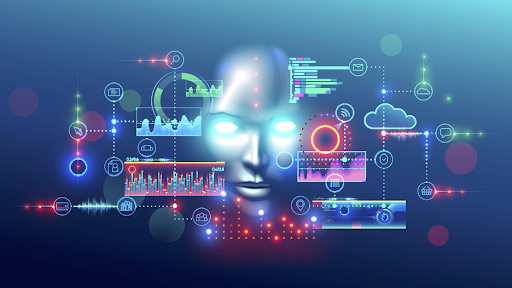Machine Learning in Game Development: Transforming the Future of Gaming
Machine learning (ML) is rapidly transforming game development, enabling new levels of realism, immersion, and creativity. Here are some of the key areas where ML is being used in game development today:
Procedural content generation (PCG):

MLpowered PCG in No Man’s Sky:
ML algorithms can be used to automatically generate game content, such as levels, characters, and environments. This can save developers time and resources, and allow them to create more diverse and unpredictable game worlds. For example, ML-powered PCG is used in games like No Man’s Sky to generate the vast and varied universe that players explore.
Non-player character (NPC) control:

MLcontrolled NPCs in Red Dead Redemption 2:
ML algorithms can be used to create intelligent and lifelike NPCs that can learn from their experiences, adapt to their environment, and interact with the player in complex and meaningful ways. This can lead to more immersive and engaging gameplay experiences. For example, ML-controlled NPCs in games like Red Dead Redemption 2 can form relationships with the player, remember their interactions, and react to their actions in a believable and unpredictable manner.
Interactive storytelling:

ML powered interactive storytelling in Detroit: Become Human:
ML algorithms can be used to create dynamic and branching narratives that adapt to the player’s choices and actions. This allows for more personalized and engaging storytelling experiences. For example, ML-powered interactive storytelling is used in games like Detroit: Become Human to create multiple endings and different story paths based on the player’s decisions.
Game mechanics and level design:

ML powered game mechanics and level design in Mario AI:
ML algorithms can be used to create more balanced, challenging, and rewarding game mechanics and level designs. For example, ML algorithms can be used to dynamically adjust the difficulty of a game based on the player’s skill level, or to generate procedurally generated levels that are tailored to the player’s preferences.
Additional points:
- ML is also being used to develop new tools and resources for game developers, such as ML-powered asset creation tools and ML-powered game testing tools.
- ML is being used to improve the accessibility of games for players of all abilities, such as by developing ML-powered game assistants that can help players with disabilities to overcome challenges.
- ML is being used to create new and innovative forms of entertainment, such as ML-powered games that can be played by multiple players simultaneously without the need for a central server.
Examples of ML in games:
- In the game No Man’s Sky, ML is used to generate the vast and varied universe that players explore.
- In the game Red Dead Redemption 2, ML is used to control the NPCs, making them more intelligent and lifelike.
- In the game Detroit: Become Human, ML is used to create dynamic and branching narratives that adapt to the player’s choices and actions.
- In the game Mario AI, ML is used to generate procedurally generated levels that are tailored to the player’s skill level.
Conclusion
ML is having a major impact on game development and is poised to revolutionize the industry in the years to come. By enabling new levels of realism, immersion, and creativity, ML is helping to create more engaging and meaningful gaming experiences for players around the world.

Machine learning (ML) is rapidly transforming game development, enabling new levels of realism, immersion, and creativity. Here are some of the key areas where ML is being used in game development today:
Procedural content generation (PCG):

MLpowered PCG in No Man’s Sky:
ML algorithms can be used to automatically generate game content, such as levels, characters, and environments. This can save developers time and resources, and allow them to create more diverse and unpredictable game worlds. For example, ML-powered PCG is used in games like No Man’s Sky to generate the vast and varied universe that players explore.
Non-player character (NPC) control:

MLcontrolled NPCs in Red Dead Redemption 2:
ML algorithms can be used to create intelligent and lifelike NPCs that can learn from their experiences, adapt to their environment, and interact with the player in complex and meaningful ways. This can lead to more immersive and engaging gameplay experiences. For example, ML-controlled NPCs in games like Red Dead Redemption 2 can form relationships with the player, remember their interactions, and react to their actions in a believable and unpredictable manner.
Interactive storytelling:

ML powered interactive storytelling in Detroit: Become Human:
ML algorithms can be used to create dynamic and branching narratives that adapt to the player’s choices and actions. This allows for more personalized and engaging storytelling experiences. For example, ML-powered interactive storytelling is used in games like Detroit: Become Human to create multiple endings and different story paths based on the player’s decisions.
Game mechanics and level design:

ML powered game mechanics and level design in Mario AI:
ML algorithms can be used to create more balanced, challenging, and rewarding game mechanics and level designs. For example, ML algorithms can be used to dynamically adjust the difficulty of a game based on the player’s skill level, or to generate procedurally generated levels that are tailored to the player’s preferences.
Additional points:
- ML is also being used to develop new tools and resources for game developers, such as ML-powered asset creation tools and ML-powered game testing tools.
- ML is being used to improve the accessibility of games for players of all abilities, such as by developing ML-powered game assistants that can help players with disabilities to overcome challenges.
- ML is being used to create new and innovative forms of entertainment, such as ML-powered games that can be played by multiple players simultaneously without the need for a central server.
Examples of ML in games:
- In the game No Man’s Sky, ML is used to generate the vast and varied universe that players explore.
- In the game Red Dead Redemption 2, ML is used to control the NPCs, making them more intelligent and lifelike.
- In the game Detroit: Become Human, ML is used to create dynamic and branching narratives that adapt to the player’s choices and actions.
- In the game Mario AI, ML is used to generate procedurally generated levels that are tailored to the player’s skill level.
Conclusion
ML is having a major impact on game development and is poised to revolutionize the industry in the years to come. By enabling new levels of realism, immersion, and creativity, ML is helping to create more engaging and meaningful gaming experiences for players around the world.
